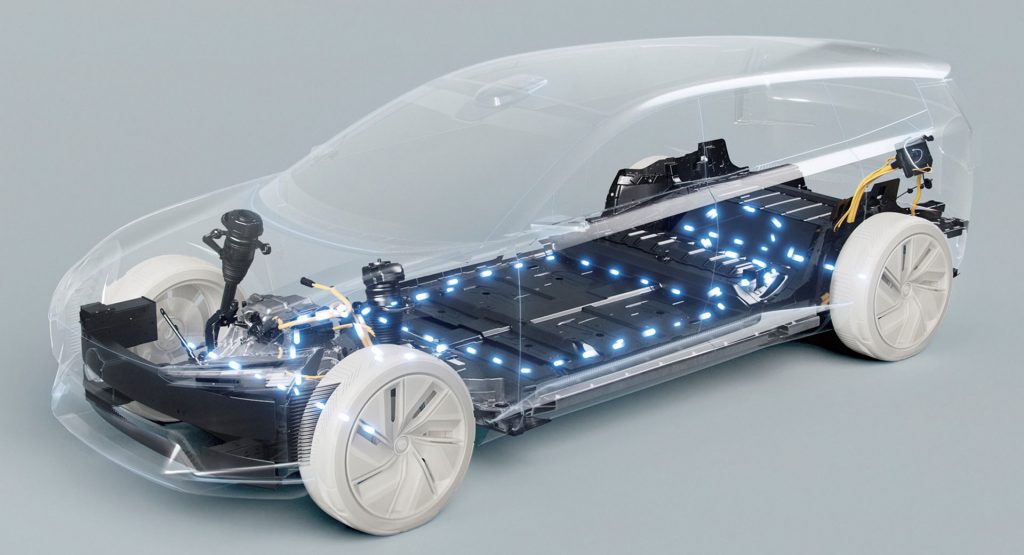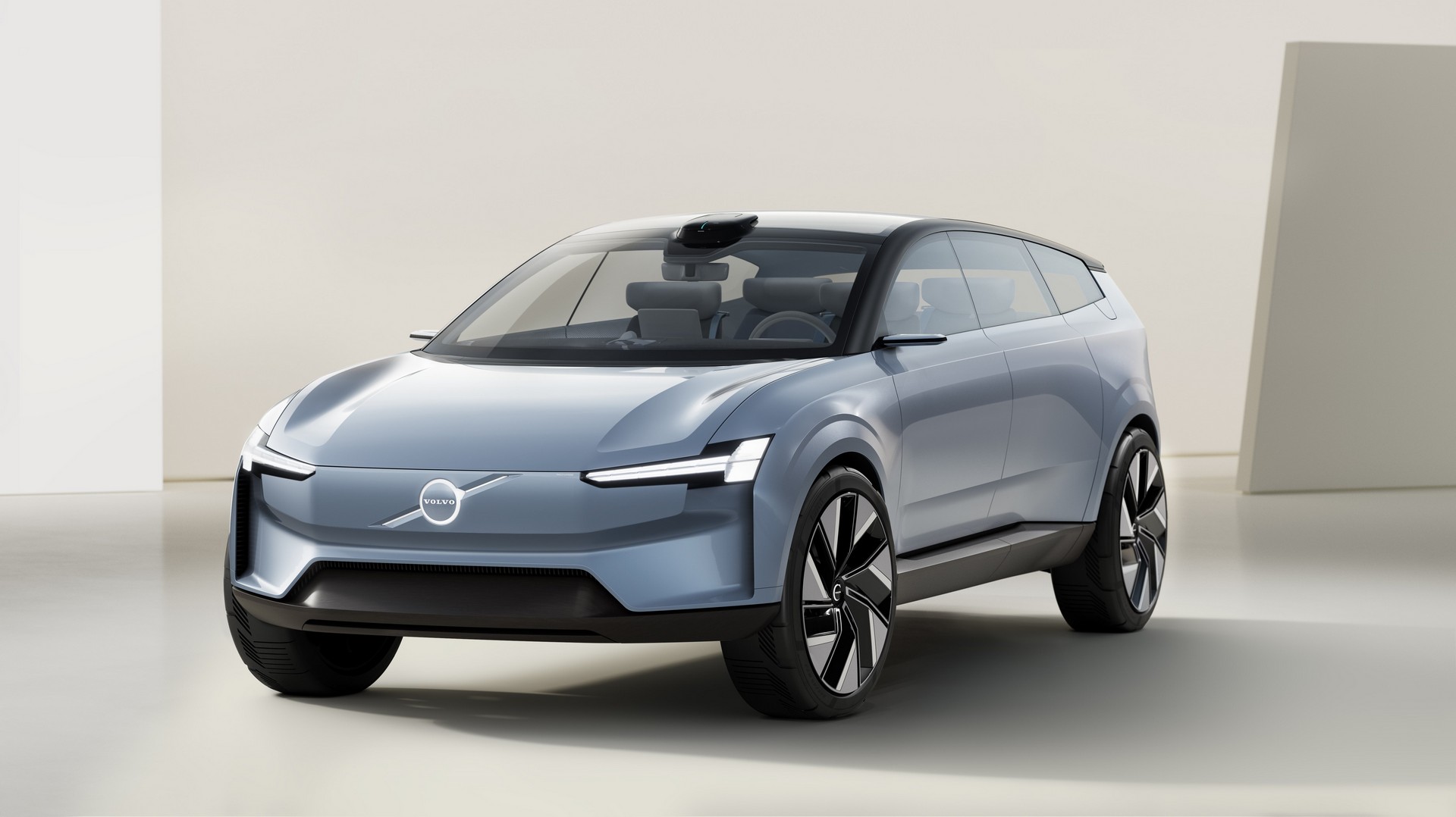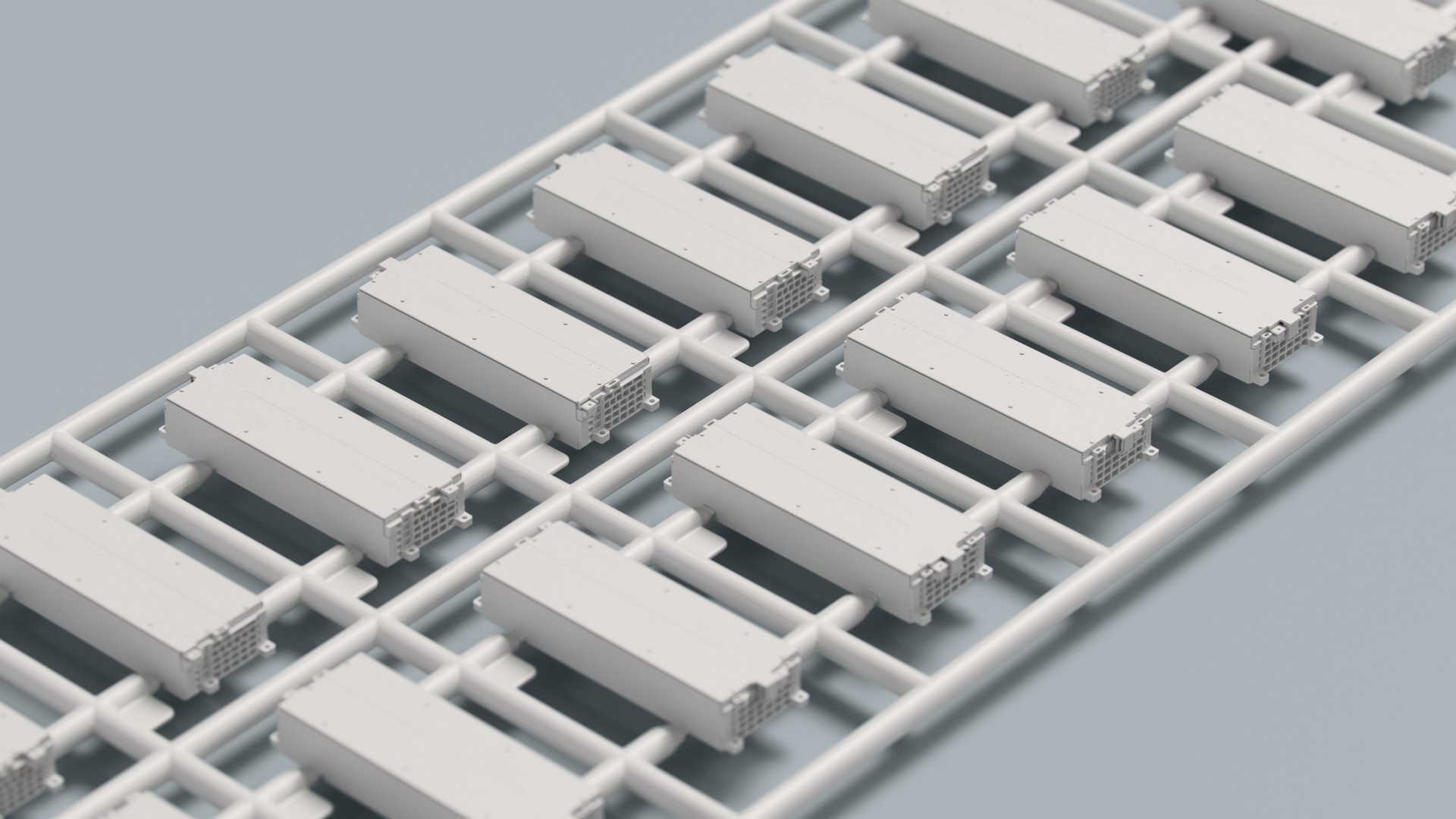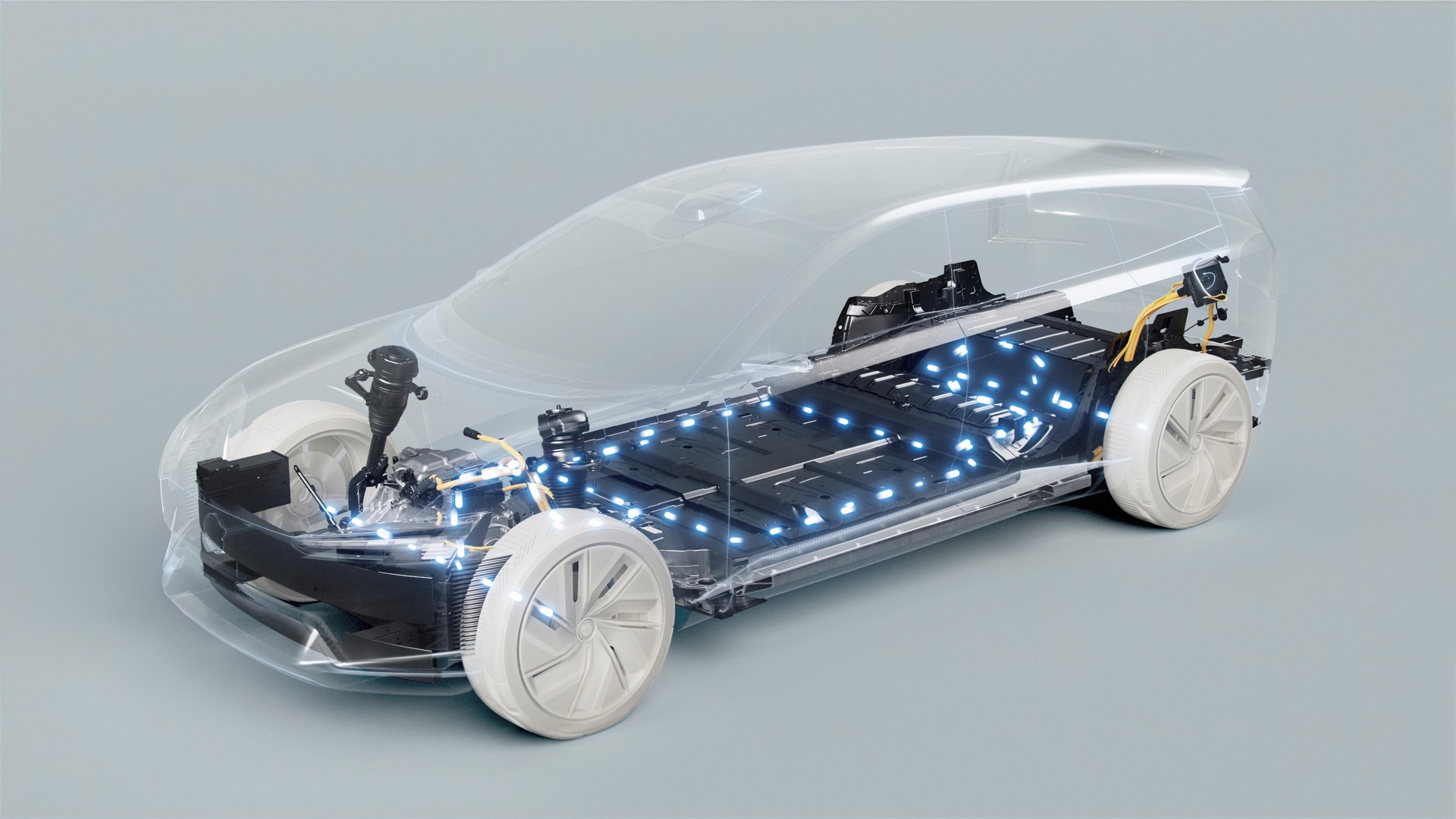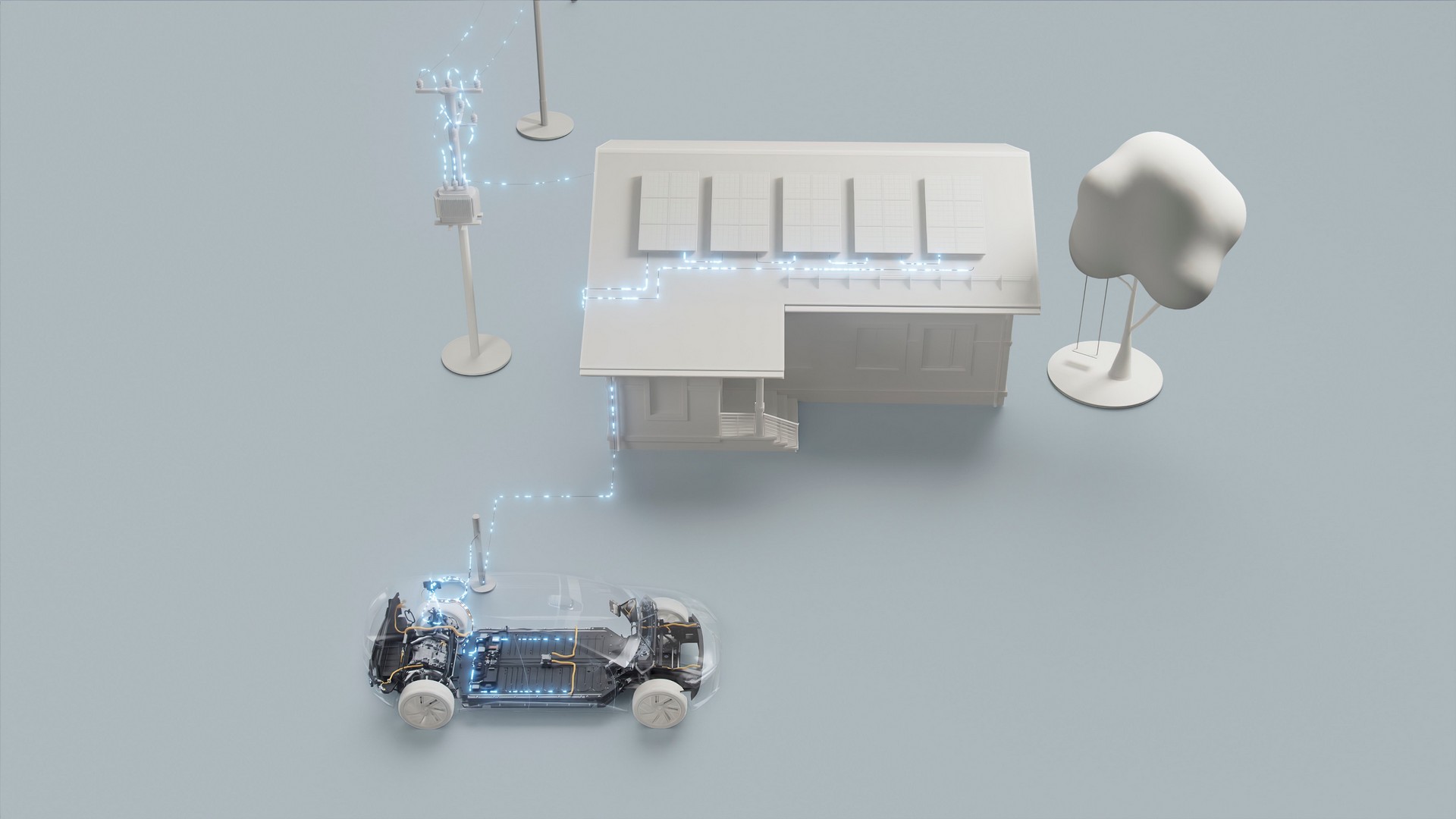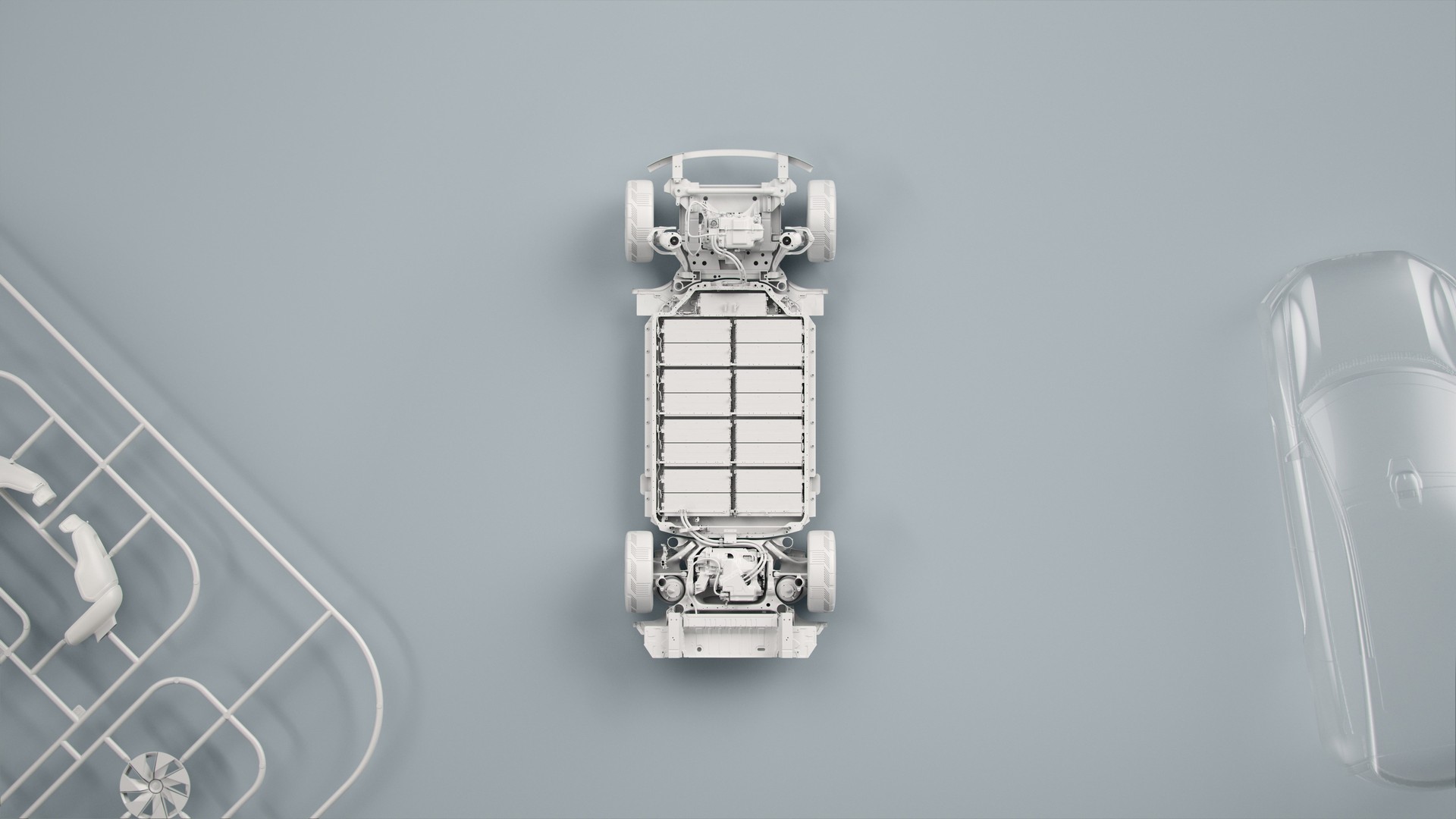If you ask a dozen people how much range an EV needs, you’ll probably get a dozen different answers.
While GM believes that number is 300 miles (483 km), Volvo is aiming higher, much higher. In fact, they’re looking to “break the 1000 Wh/l energy density milestone, in order to achieve 621 miles (1000 km) of real driving range” later this decade.
The move was announced as part of Volvo’s transition to an EV-only brand and the automaker aims to improve lithium-ion battery technology on its second-generation of electric vehicles, which will be spearheaded by a crossover riding on a dedicated platform.
Also Read: Volvo Hints At Electric XC90 Successor With New Recharge Concept
Of course, such a dramatic improvement in range won’t happen overnight and, in the near term, Volvo is working with Northvolt to increase the energy density in its battery cells by up to 50 percent.
In the long term, Volvo will introduce its third-generation of electric vehicles by mid-decade. They promise to have greater ranges and a battery pack that is integrated into the floor to increase overall vehicle stiffness as well as efficiency.
While long ranges typically mean long recharging times, Volvo said “current charging times are expected to be cut almost in half by mid-decade.” This should be made possible by better battery technology and continuous improvements to fast-charging technology.
Volvo’s chief technology officer, Henrik Green, said the company wants to “constantly increase the customer benefits of driving a pure electric Volvo car.” He went on to explain that “by simplifying the design and integration of our battery cells, we can reduce weight and maximize space, allowing for considerable improvements in battery capacity, range and charging times.”
While Volvo didn’t go into many specifics, they confirmed the XC90 successor will be offered with bi-directional charging. This will enable the crossover to provide power to the electric grid when prices and demand are high, and then recharge when prices and demand are low.
The XC90 successor is slated to be introduced around 2022 and it should follow in the footsteps of the Recharge concept that was unveiled only yesterday.




